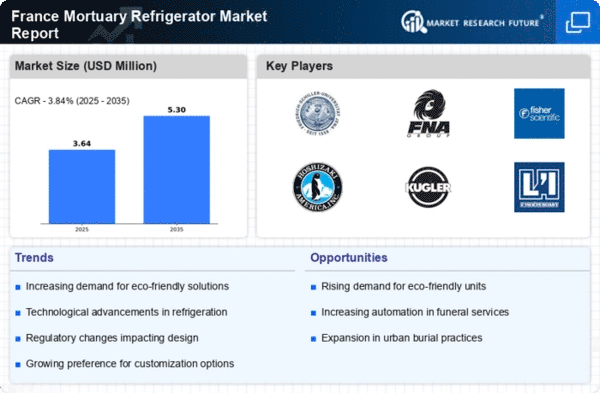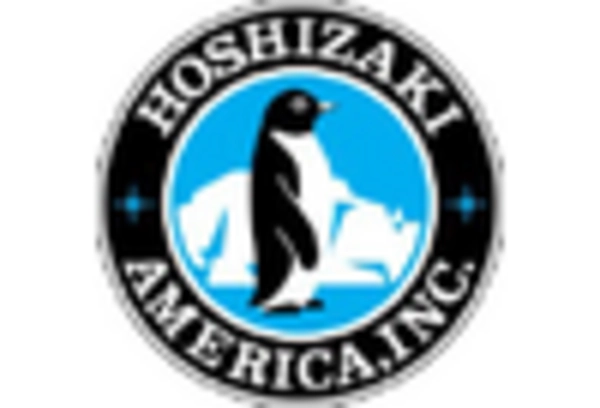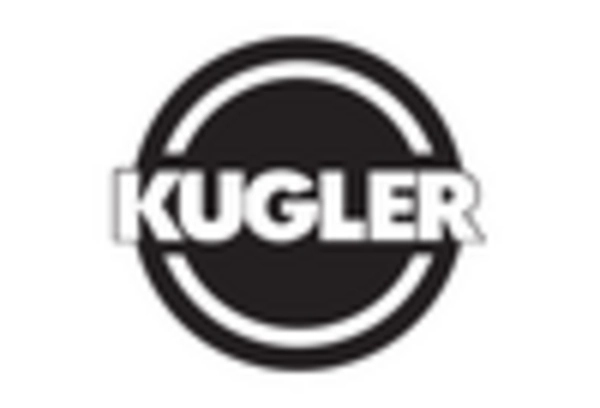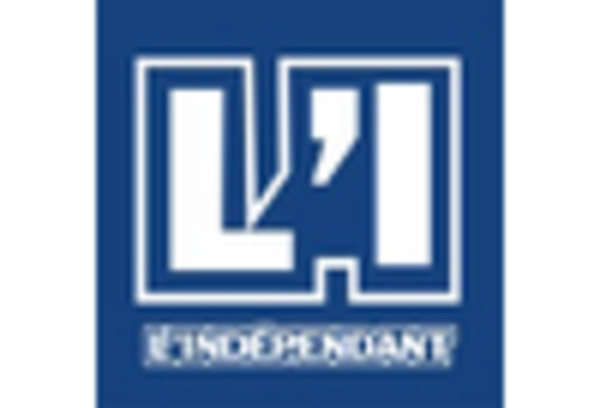Regulatory Standards and Compliance
The mortuary refrigerator market is heavily influenced by regulatory standards and compliance requirements set forth by health authorities in France. These regulations dictate the necessary conditions for body storage, including temperature controls and hygiene standards. Compliance with these regulations is crucial for funeral homes and mortuaries to operate legally and maintain their reputations. As regulations become more stringent, the demand for high-quality mortuary refrigerators that meet these standards is expected to rise. The mortuary refrigerator market must adapt to these changes, ensuring that products not only comply with current regulations but also anticipate future requirements.
Cultural Shifts in Funeral Practices
Cultural shifts in funeral practices are influencing the mortuary refrigerator market in France. There is a growing trend towards personalized and unique funeral services, which often require specialized refrigeration solutions. Families are increasingly opting for services that reflect their loved ones' lives, leading to a demand for mortuary refrigerators that can accommodate various needs, such as longer viewing times or specific storage conditions. This evolution in consumer preferences is prompting the mortuary refrigerator market to innovate and diversify its product offerings, ensuring that they meet the expectations of modern families while maintaining the highest standards of care.
Increasing Demand for Mortuary Services
The rising population in France has led to an increased demand for mortuary services, which directly influences the mortuary refrigerator market. As the number of deaths rises, funeral homes and mortuaries require efficient refrigeration solutions to preserve bodies for longer periods. This trend is particularly evident in urban areas where the population density is high. According to recent statistics, the mortality rate in France is projected to increase by approximately 1.5% annually, thereby necessitating the need for advanced mortuary refrigeration systems. The mortuary refrigerator market is likely to benefit from this growing demand, as service providers seek to enhance their operational capabilities and meet the expectations of families during difficult times.
Aging Population and Changing Demographics
France's aging population is a significant driver for the mortuary refrigerator market. As the demographic landscape shifts, with a growing proportion of elderly individuals, the demand for mortuary services is likely to increase. This demographic trend suggests that funeral homes will need to invest in more efficient refrigeration solutions to accommodate the needs of families during the grieving process. The mortuary refrigerator market is poised to expand as service providers seek to enhance their offerings and ensure that they can adequately preserve bodies for extended periods, reflecting the changing societal norms surrounding death and funerals.
Technological Innovations in Refrigeration
Technological advancements in refrigeration technology are significantly impacting the mortuary refrigerator market. Innovations such as energy-efficient cooling systems, smart temperature monitoring, and advanced insulation materials are becoming increasingly prevalent. These technologies not only improve the efficiency of mortuary refrigerators but also reduce operational costs for funeral homes. For instance, energy-efficient models can lower electricity consumption by up to 30%, which is a substantial saving for businesses operating in a competitive market. The mortuary refrigerator market is thus witnessing a shift towards more sophisticated and environmentally friendly solutions, aligning with the broader trends in energy conservation and sustainability.

















